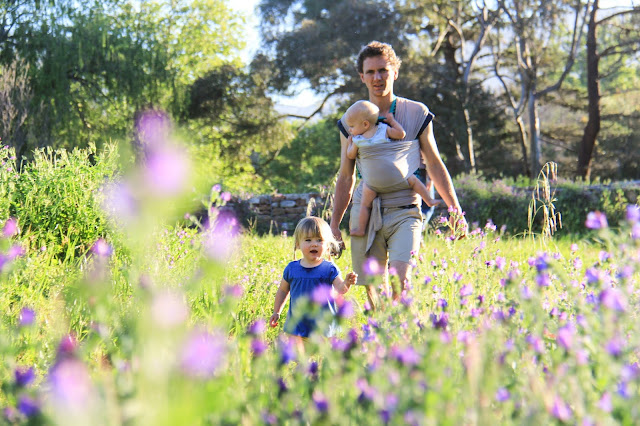Our minimalism
'
I am making a package for you, anything you want?' That should be an easy question to answer when you live in the middle of nowhere without access to shops or online shopping. To my own surprise I don't have an answer right away. I don't know what I want. I don't know what I could want. Three months in a remote village, mostly away from the endless stream of commercials, pictures of well dressed families and carefully curated and decorated homes, magazines and all the other triggers that can make you want to buy and have, is a good detox against materialism. There is nothing that I really want. Most of the money that I spend the last 3 months was on food. One of the few items that I did buy was a bin, handmade out of local bamboo by one of our watchmen. A dustbin to throw things away. Rather ironic, if I think about it.
My thoughts go to a few months back. I was reducing the content of our house and sorting things until it would fit in the four suitcases that we brought here. I always thought that we did not have that much but it still took weeks to work my way through all the toys, the clothes, the kitchen items and all the random things of which the reason they entered our house was long forgotten. It felt impossible and so many of the items that we could not bring along seemed essential.
It turns out that even with the content of only four suitcases you can have enough. Too much even. The girls can still make a mess, eventhough they only have a few toys, I can still stand in front of my wardrobe (a figurative wardrobe) not knowing what to wear because I have too much choice.
Minimalism is hip, it's a codeword for happiness and a fashionable house and wardrobe. But it often feels as if the minimalism that is sold is just another kind of consumerism. A wolf in sheepskin. Because minimalism isn't real unless it includes a lot of white and natural materials. It is not real unless it looks like the minimalism from the magazine. It isn't real until you have spend half a month's salary on that one statement vase or that overpriced handknitted wool blanket or jumper.
White and natural materials are beautiful. The magazine pictures are envy inducing. But aren't we missing the point here? If minimalism is something that you need a budget for it feels a bit fake and leaves a sour taste in my mouth. Dear interior decorator, magazine editor, instagram influencer, if you make people feel like they do not have the money for a minimalist house or wardrobe, you are advocating consumerism, not minimalism.
To us minimalism is about being resourceful and creative. To always ask yourself (and be honest) if something is a necessity or luxury. To see if you really need to buy it new or if you can get it second hand, make it yourself or borrow it. It may not always exactly look like the magazine but it saves a lot of money, it fights consumerism and materialistic thinking and is kind to our planet and makes you unique. Hartmut made sure that I added that minimalism is not about being cheap. Quality over quantity because it's better to invest in things that last, and to buy things that are made in a sustainable way.
Here in Malawi we are living with very little. But still embarrassingly much compared to most of the people around us. It is refreshing to live in a society where stuff and fashion do not really play a role and where happiness is not based on what you have. However, not having many things is, for most people here, not a choice but a consequence of poverty. It reminds us that having the choice to live with as much or as little as you want is a luxury in itself.
Oh, and I just want to say that it is easy to live a very minimalistic life here, where I am never confronted with things I want to buy. It was a lot harder in Cape Town to limit myself and if you leave me for too long in an Ikea or Hema, I will temporarily forget everything I believe in and become a first class hoarder. Also, I do now know what I want in that package. Chocolate, books for the girls, some spices for in the kitchen... It's not hard to wake up the consumer in me but it's great that she gets to sleep so often.


